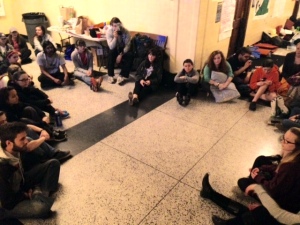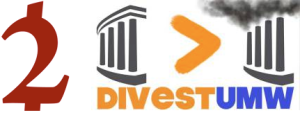It costs money to be sheltered. Food, water, and shelter are three basic necessities you have to buy. Think about it: what if you only had two dollars a day to spend on a house? If our Virginia weather is any indication I think you’d be screwed and our storms might be considered mild compared to many other places in the world. During this Two Dollar A Day Challenge (TDC), its been raining on our shelter for the last few days, but yesterday in Bangladesh a violent storm destroyed roughly 700 tin and mud houses, killing 41, and cutting off electricity to thousands. Weather is a much more dramatic issue to the impoverished, and it is only getting worse.
Climate change puts those who are poor in the firing line ahead of those who can pay for protection. Inclement weather causes drought and destroys crops. It drains people’s savings during their recovery. It displaces more families and causes more migrations. Because of this, foreign aid and economic development cannot ignore environmental issues, least of all those encouraging them. Governments in places like Honduras have to be held accountable for the loss of forested area from 57 percent to 44 percent in twelve years, dropping below the average in Latin America.
 What might the TDC do to help draw attention to the issue of climate change?
What might the TDC do to help draw attention to the issue of climate change?
Divest UMW is an on campus student movement trying to get the administration to remove their investments in the fossil fuels industry. TDC sees a similar problem of approach in blanket solutions to global poverty as it does in campus green initiatives. Just as blind, unguided charity may do nothing to help someone escape a poverty trap, recycling programs may be a good thing, but they only prolong the issue without getting to the real source of climate change, the fossil fuel industry itself. We have to get to the root of the problem. Our institutions are only putting a band-aid on a bullet wound and we think Divest UMW is trying to help sew it up.
The good news is that institutional change is possible. Take British Colombia for example: according to the World Bank, the province “has shown how revenue from a carbon tax can provide targeted support for the poor while also reducing business and income taxes. The Canadian province created a low-income climate action tax-credit that provides quarterly payments to the poor to offset higher prices. Today, British Columbia has one of the lowest income taxes in the country, a thriving economy fueled in part by green growth, and its emissions have fallen.”
Two birds, one stone. We believe UMW is in the fight against poverty, we politely encourage it to consider divestment to be on the same side.
We care about poverty, and poverty is made worse by climate change. Therefore, we care about climate change. Every group on campus should consider what they take for granted, including shelter from a natural disaster. Remember, it costs money to be sheltered. Divest UMW is part of a greater movement to keep the misfortunate around the world from worsening effects of global warming. Let’s be humbly conscious of how we try to help people and what people we try to fund.


